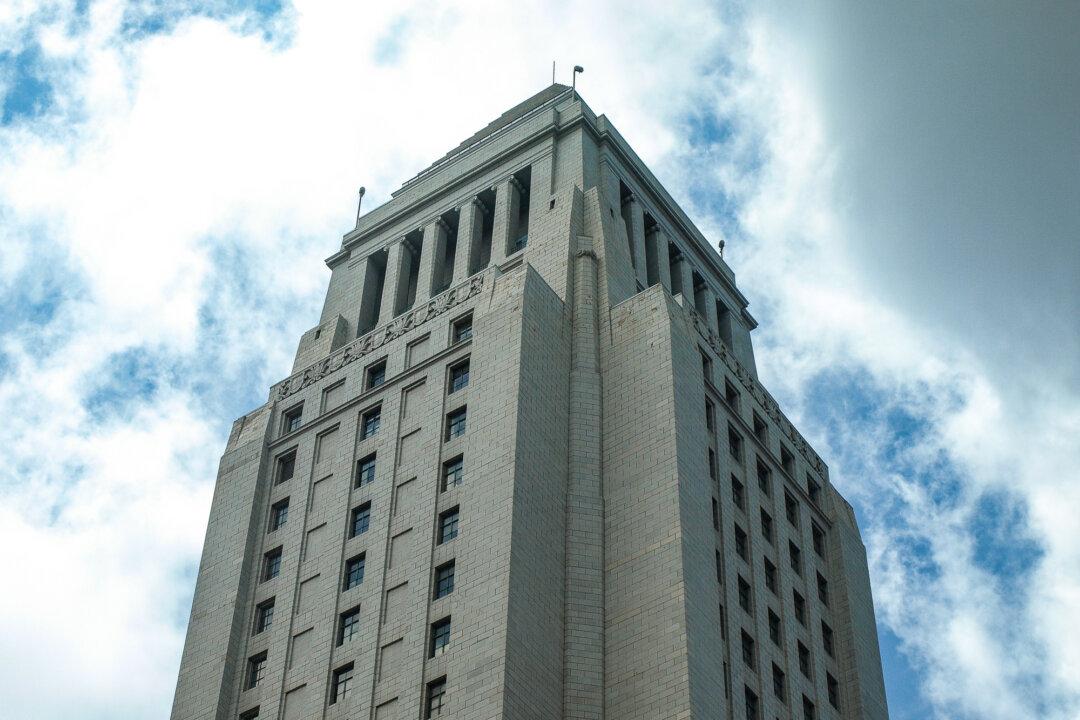Demonstrators in Los Angeles will no longer be able to protest within 300 feet of a target’s home, according to an ordinance passed on Sept. 21 by the city council after Angelenos protesting the city’s COVID-19 vaccine mandate showed up at two councilmembers’ homes.
On Sept. 14, the city council voted 13–2 to pass the ordinance, with Councilmembers Nithya Raman and Mike Bonin dissenting, though they declined to comment at the final vote. A unanimous vote would have been required to pass the ordinance on first reading; on second reading, ordinances usually require a simple majority to pass, but because this ordinance included an emergency clause, it required a three-fourths majority to pass. The final vote on Sept. 21 passed, again with a 13–2 vote.





